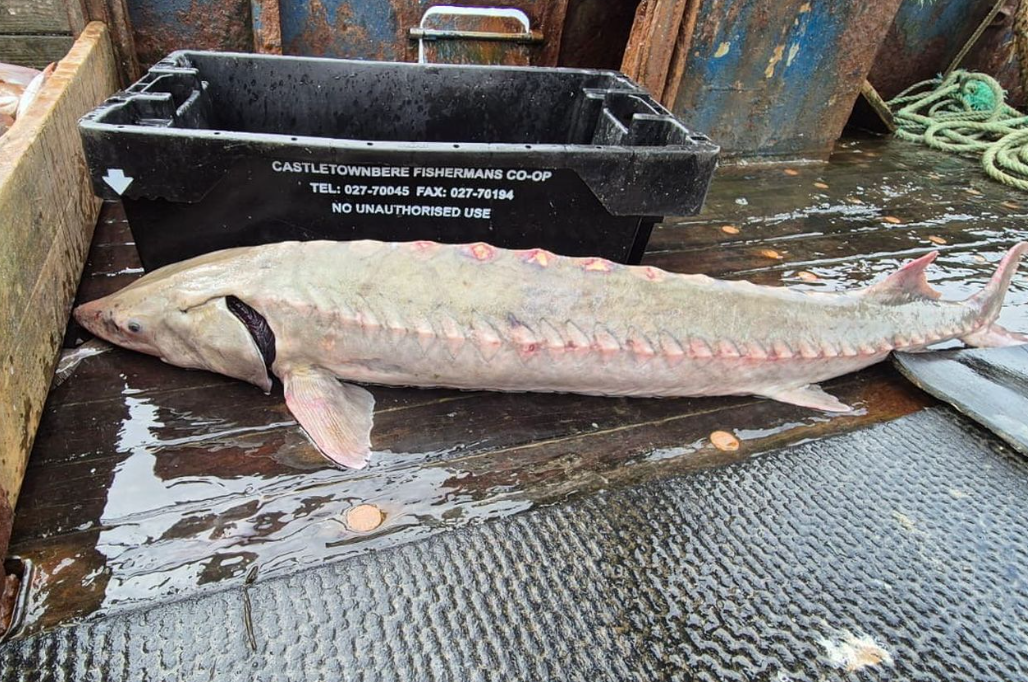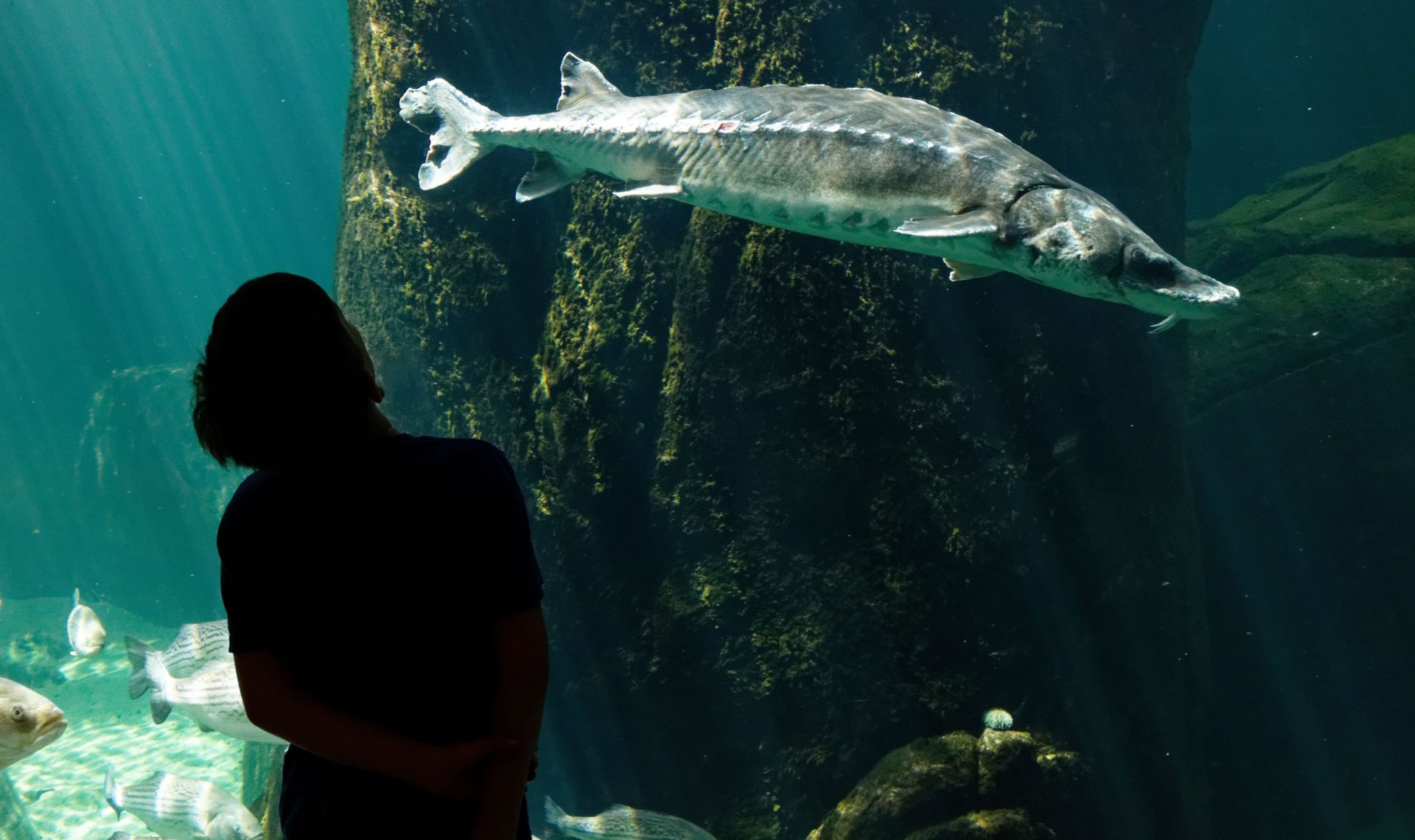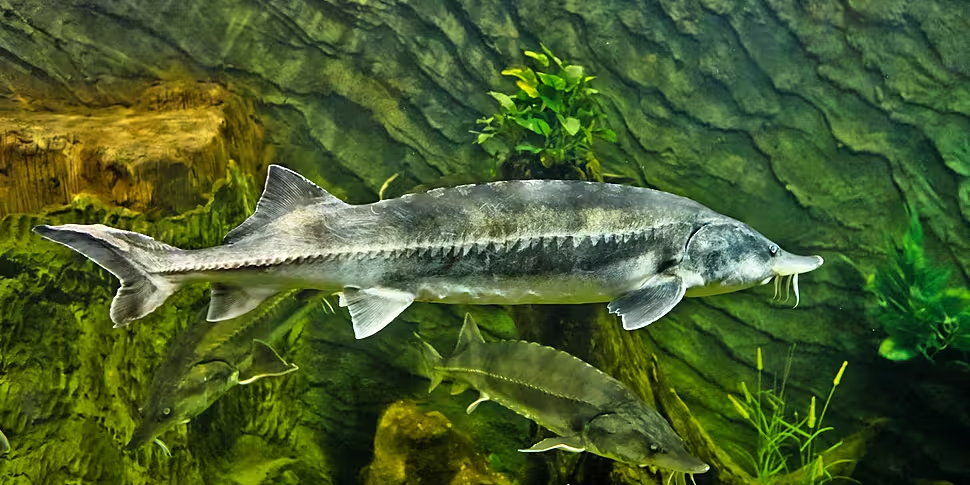With a recent sighting of a sturgeon, previously thought to be extinct in Irish waters, what is this ‘dinosaur fish’, and why is it important for our aquatic ecosystem?
Ecologist, Irish Examiner columnist and author of ‘Wild Ireland’ Anja Murray said the last sighting of a sturgeon in Irish waters was 1987.
“Even in the Bronze Age we know that people here caught sturgeon regularly," she told Moncrieff.
"There’s records right through medieval times and up through the centuries of people catching and harvesting sturgeon from estuaries or rivers and from the sea.
“They have suffered a lot from overfishing, but we don’t have a brilliant record score, so it’s hard to know.”
The sturgeon is both a fresh and saltwater fish, which spawns in rivers before moving out to the sea until they reach full maturity.
 The sturgeon caught off the coast of Kerry.
The sturgeon caught off the coast of Kerry.“Most will grow to two or three metres long, but exceptional specimens can grow to be six metres long and they weigh as much as 400 kilogrammes,” Ms Murray said.
“That’s the weight of an average horse.
“They’re often referred to as a fossil fish or a dinosaur fish because they’ve been pretty much unchanged for 150 million years.
“So, that’s an awful lot longer than humans have been on the planet.”
 A silhouette of a young boy (9 yr old) looking at a sturgeon in an aquarium. Image: CBW. 29 June 2021
A silhouette of a young boy (9 yr old) looking at a sturgeon in an aquarium. Image: CBW. 29 June 2021“This call [was made] back in 2023 from the Irish Wildlife Trust to reintroduce sturgeon, or to look at reintroducing sturgeon in Irish waters,” she said.
“It does suggest that it would be possible to establish sturgeon here again, like they are across Europe.
“So, in France and in Germany, they have captive breeding programmes where they’re realeasing huge numbers of tiny sturgeon into a couple of rivers in the hope of saving these fish from extinction.”
However, Ms Murray said about half of Irish rivers and estuaries do not currently have good enough water quality for the fish to survive long term.
Main image: Beluga, or Great sturgeon (Huso huso) swimming in aquarium. Image: Leonid Serebrennikov. 22 November 2014









